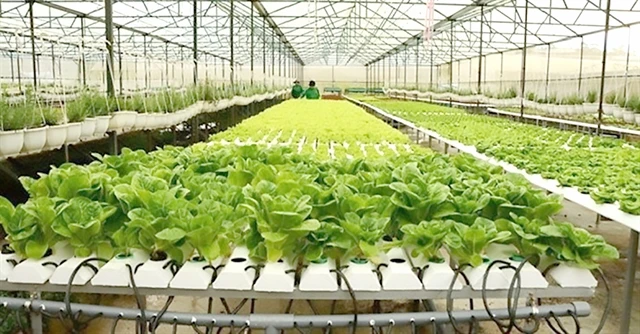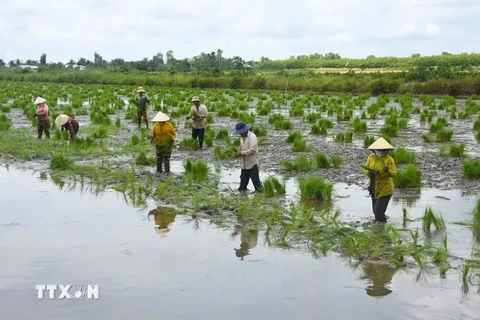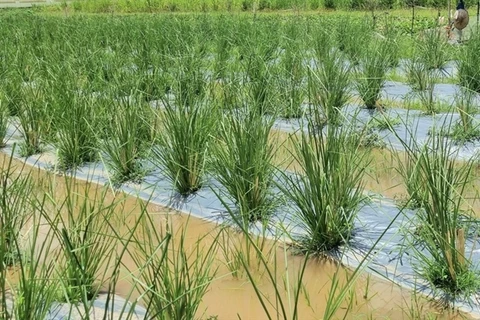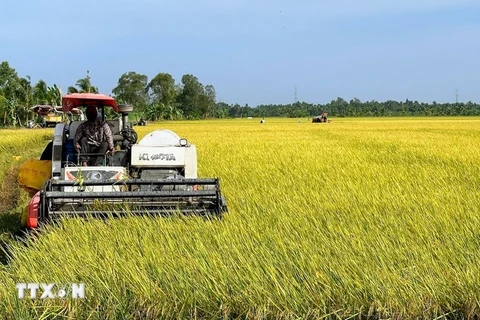
HCM City (VNS/VNA) - Though Ho Chi Minh City’s farmlands continue to disappear due to rapid urbanisation, productivity has increased over the years, reaching 575 million VND (22,615 USD) per hectare last year, according to its Department of Agriculture and Rural Development.
The city targets increasing the value to 650-750 million VND (25,564-29,497 USD) next year, it said.
To accomplish the target, the city encourages farmers to grow other crops on rice farms with low productivity such as vegetables, flowers, ornamental plants, fruits, and plants for making animal feed, or switch to aquaculture.
It aims to develop sustainable urban agriculture by using high technology on at least 70% of lands by 2030.
Assessing the city's ability to develop urban agriculture, Dr Nguyen Dang Nghia, an agricultural expert, said it has a flower, ornamental plants and ornamental fish development programme, which could help switch from the tradition of rice to other items such as ornamental plants, dairy and safe vegetables that offer higher economic value.
But he pointed out that there are difficulties such as a shortage of resources, rapid decrease in farmlands, dwindling of human resources, and lack of concentrated agricultural areas.
Construction of facilities on agricultural lands has also proven difficult, he said.
Dr Vu Thi Quyen of Van Lang University’s applied technology faculty said the city has strengths in growing vegetables and flowers.
But with its available lands, it could only meet 28% of the demand for vegetables, while its pig, cattle, poultry, and aquaculture output meet 11%, 19.7%, 1.2%, and 14% of local demand, she said.
The rest of the agricultural products and foods consumed in the city are supplied by other localities, she pointed out.
The lack of well-trained agricultural workforce, climate change and biodiversity loss have affected crop yields, she added.
Dr Nguyen Van Bo, former director of the Vietnam Academy of Agricultural Sciences, said urban agriculture is developing in an unplanned manner.
The Government has not issued any policy related to urban agriculture.
Of the country’s two major cities, HCM City only recently approved the "Urban Agriculture Development Programme" last December, he said.
Under the programme, in 2024 - 25 the city plans to develop into a high-tech agricultural hub and a modern industrial and agricultural service centre, ensuring connectivity between supply and demand of high-quality and safe agricultural, forestry and fishery products and services in the value chain.
It also wants high technology to account for 45% – 50% of the agriculture, forestry and fisheries sector’s total production./.






















